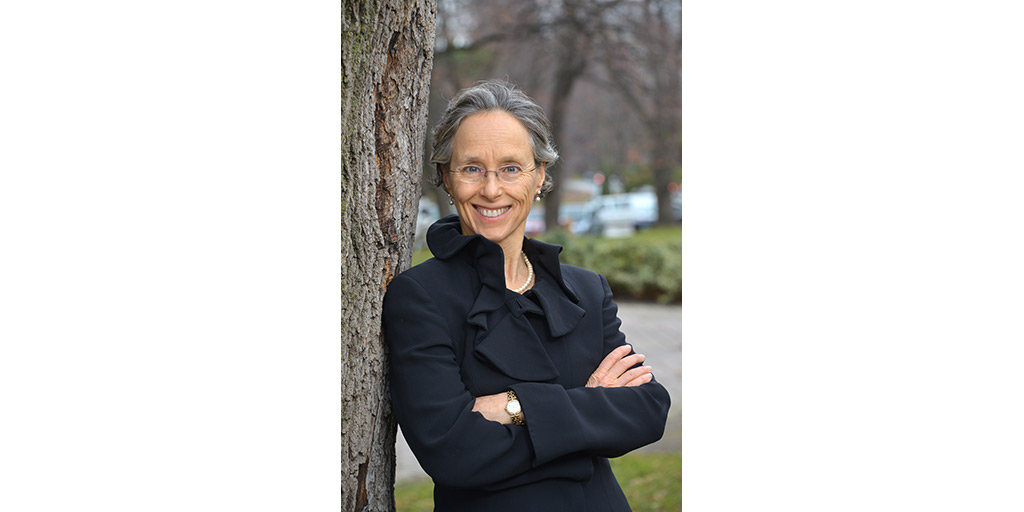Environmental Commissioner of Ontario comes to Fanshawe during London visit
 CREDIT: PROVIDED BY DR. DIANNE SAXE
CREDIT: PROVIDED BY DR. DIANNE SAXEEnvironmental Commissioner of Ontario (ECO), Dr. Dianne Saxe visits London and Fanshawe for an engaging speech. The Interrobang spoke with Saxe before her talk to learn about the environment and Ontario's part in helping to save it.
On Feb. 27, just a week after the extreme weather event that had London and surrounding communities flooded, the Environmental Commissioner of Ontario (ECO), Dr. Dianne Saxe, came to give a talk at the Central Library on Dundas Street. While she was in the area she stopped by Fanshawe College to see the progress being made at the fine institution.
Interrobang got to speak with Saxe during her meeting with Amanda Whittingham, Fanshawe's sustainability co-ordinator, to ask about her role and what people can do to help protect environment.
“First I am the Guardian of the Environmental Bill of Rights. The Environmental Bill of Rights is a statute that gives all Ontarians the right to participate in any significant environmental decision made by the provincial government; I would encourage all your readers to learn about it. I am the “watchdog” so I report to the legislation, through them to the public; a non-partisan, non-bias evaluation on energy and environment,” Saxe said.
One of the ways she said people could do their part was to participate and check the Environmental Registry online database for recent government, environmental proposals.
“If the public thinks a decision is unjustified they have the right to appeal by filing for environmental review,” Saxe said.
“I came to learn about what the college wanted to teach me about the work that's being done here to reduce energy consumption, and also the research that is being done. I take every opportunity when I go to give talks to learn from the locals and I was very glad to be invited here today,” Saxe said.
She went on to say the three things she asks everyone she speaks to, to do to help the environment. “First of all, figure out your carbon foot print and reduce it by five per cent each year. Secondly, get ready for the wilder weather that's coming; [�] we need to be able to survive three days without public assistance and third, is to speak up,” Saxe said.
Later, during Saxe's seminar at the Central Library she discussed the Ontario Climate Act, the Environmental Bill of Rights (EBR) and the Protected Areas Shortfall in Ontario, as well as provided books and pamphlets for people to take and share. In one statement she went on to hail the advancements in conservation we've made here at Fanshawe.
“I was at Fanshawe College today and learned of the tremendous progress they've made reducing their energy consumption and their water consumption and how much money they're saving; they're saving a sixth of their energy bill every year by investing in energy conservation and now they're getting a stack of money from cap and trade which will allow them to be much more energy efficient,” Saxe said.
During her talk she discussed what she saw happening with the environment and the way people needed to collectively respond.
“Only one percent of the extra heat is in the air [�] all the rest goes into the ocean. [�] The more ice we melt, the more heat we absorb.” She explained this was because ice and snow reflect sunlight and heat. “[Also] the more heat we absorb the more ice we melt; this is a feedback loop we do not control,” Saxe said.
“What else do we need to see before we know this is the most important thing we have to do? Hurricanes, fires, floods, and the Artic melting, is that enough or do you need more?” she asked the audience.
Although we're living in a world with more frequent environmental catastrophes, where weather records are broken yearly; according to Saxe it may not be entirely too late to make a difference.
“People always ask if it's too late; too late for what? Is it too late for young people to have the same world [I] had growing up? Yes. Is it too late to make a difference in what's coming? No, we're in that moment right now. [�] This is the moment of crisis, every single one of you can do something that matters,” Saxe said.
Anyone interested in learning about Ontario's Climate Act or to find out more on how to exercise your right to protect the environment go to eco.on.ca.














